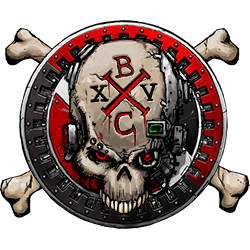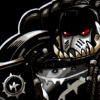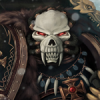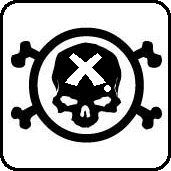-
Posts
309 -
Joined
-
Last visited
Midgard's Achievements
-
 lordhellblade reacted to a post in a topic:
Arguments against Guilliman's new order
lordhellblade reacted to a post in a topic:
Arguments against Guilliman's new order
-
 Midgard reacted to a post in a topic:
Arguments against Guilliman's new order
Midgard reacted to a post in a topic:
Arguments against Guilliman's new order
-
 Lazarine reacted to a post in a topic:
Arguments against Guilliman's new order
Lazarine reacted to a post in a topic:
Arguments against Guilliman's new order
-
 Calyptra reacted to a post in a topic:
Arguments against Guilliman's new order
Calyptra reacted to a post in a topic:
Arguments against Guilliman's new order
-
 Iron Father Ferrum reacted to a post in a topic:
Arguments against Guilliman's new order
Iron Father Ferrum reacted to a post in a topic:
Arguments against Guilliman's new order
-
 DogWelder reacted to a post in a topic:
Arguments against Guilliman's new order
DogWelder reacted to a post in a topic:
Arguments against Guilliman's new order
-
This has been alluded to several times in this thread, but an in-universe argument against Guilliman's takeover is that Guilliman himself presents a single point of failure. His entire new order is dependent on him being present and capable to run the affairs of the Imperium, to deal with the macro-level threats, and to keep the Imperium at least somewhat cohesive. Take Guilliman out, and there is a very high possibility of the entire edifice crumbling. In a way, Guilliman created an order where he cannot be out of commission for too long, cannot risk himself (realistically speaking... we all know that heroic battles between a primarch and some primordial monsters make for great storytelling, even if in real life you rarely see emperors and generals actually take the field on the front lines of a battle without predictable consequences), and cannot leave. All it would take is G-man being slain, incapacitated, or worse yet - suffering a major breakdown, falling to Chaos, or otherwise compromised. There is no easy fall-back plan, as I would anticipate the Imperium falling into civil war within a year of Guilliman becoming a non-factor. In other words, the continued survival of post-Gathering Storm Imperium is too dependent on Guilliman, and there does not seem to be a clear backup plan in case something happens to him.
-
 Midgard reacted to a post in a topic:
End of an era for BL?
Midgard reacted to a post in a topic:
End of an era for BL?
-
 Midgard reacted to a post in a topic:
Gav Thorpe as a BL Writer - Honest Review Please?
Midgard reacted to a post in a topic:
Gav Thorpe as a BL Writer - Honest Review Please?
-
 DarkChaplain reacted to a post in a topic:
Gav Thorpe as a BL Writer - Honest Review Please?
DarkChaplain reacted to a post in a topic:
Gav Thorpe as a BL Writer - Honest Review Please?
-
 simison reacted to a post in a topic:
Conqueror (Twisthammer Book One)
simison reacted to a post in a topic:
Conqueror (Twisthammer Book One)
-
 Gen.Steiner reacted to a post in a topic:
Gav Thorpe as a BL Writer - Honest Review Please?
Gen.Steiner reacted to a post in a topic:
Gav Thorpe as a BL Writer - Honest Review Please?
-
That's my thing... I've always found it easier to write novel-sized pieces, and wrote three of those in Twisthammer-verse (plus quite a few original universe ones) over the years. Short stories are a different challenge, because it is sometimes hard to contain an interesting tale in a short piece without a great, self-contained, yet not too large idea.
- 55 replies
-
- Alternate heresy
- Twisthammer
-
(and 1 more)
Tagged with:
-
I think that with Gav, there is a definite upward trend in the quality of his writing. I might be in the minority here, but I did not really care for "Angels of Darkness" all that much, especially as I was just getting into BL fiction at the time, and thought it was not equal to other bigger name BL authors. That said, Gav's works over the last 4-5 years seem to be getting much stronger, as if he is building up on his strengths as a writer and learning from his past literary experiences. That latter part cannot be underestimated, and to me it makes much of a difference in my perception of Gav as a writer. His Raven Guard works are a good example of it. I thought that "Deliverance Lost" was one of the weaker Heresy novels, but even there he had glimpses of excellent writing (check out the scene of Corax's arrival on Lycaeus as a child, for example, or parts towards the end where Navar Hef was introduced). Surprisingly, the subsequent Raven Guard novellas assembled in the "Corax" anthology (and previously as standalones) were very good, ranging from decent-not-spectacular "Soulforge" to pretty-good "Ravenlord" to (IMHO) very-good "Weregeld". Similarly, Thorpe seems to get the Dark Angels feel right to me, especially in his recent works, from "The Lion" novella to "Angels of Caliban" (and his Dark Angels trilogy makes for very good reading). While I have had only minimal exposure to his Eldar stories (I only have read the Asuryan novel, and as someone who does not generally have much interest in the Eldar I liked it), he seems to be all about getting the feel right, pacing the story generally well and providing good amount of color and personality to it via flashbacks (which were, IMHO, the best thing about "Deliverance Lost" as well). Add to it the general approachable and friendly quality of his online presence, a definite upward trend in his writing, and, at least to me, it warrants a buy if it deals with a topic I find interesting. While I have not been shelling out for the Primarchs novel(las) in limited edition, I have every intention on catching up on them all eventually, and look forward to seeing what Gav did with Lorgar. On a side note, I would be very interested in checking out his original universe fantasy trilogy and seeing how it compares to his BL writing. It is always interesting to see how much of a role do the confines of a shared universe play in how an author writes, and what their writings would be like when they have free reign to define their world.
-
From the few glimpses of BotL, it looks like you guys have a large amount of stuff already written, though it's been a while since I looked last, and I am not sure where things stand now. It looked like the existing fluff was in the process of being organized and put into a consistent format, with most emphasis being on codex-style or index-style entries rather than outright fiction. Where are you guys currently looking to fill in the fluff with fiction?
- 55 replies
-
- Alternate heresy
- Twisthammer
-
(and 1 more)
Tagged with:
-
 Midgard reacted to a post in a topic:
Conqueror (Twisthammer Book One)
Midgard reacted to a post in a topic:
Conqueror (Twisthammer Book One)
-
 Midgard reacted to a post in a topic:
Conqueror (Twisthammer Book One)
Midgard reacted to a post in a topic:
Conqueror (Twisthammer Book One)
-
Appreciate the offer guys, though at this point I am not sure how much time I have to dedicate to any project of this magnitude. The more time passes, the busier I tend to get with career, family, and other things. At this point I would find it difficult to produce 100K+ word works of fiction with any degree of regularity.
- 55 replies
-
- Alternate heresy
- Twisthammer
-
(and 1 more)
Tagged with:
-
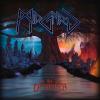
Twisthammer - an alternate history/reimagining of WH40K
Midgard replied to Midgard's topic in + LIBER ASTARTES +
The Consecrators were primarily guarding/fortifying Terra, while the Spears of Eternity had their own missions from the Emperor/Malcador. Let's just say there was supposed to be a novel dedicated to their actions (book 9 of Twisthammer-verse), which would have also heavily featured Grim Angels. The Angel Kings feature rather prominently in Twisthammer book 3, "Broken Blades", which gives some insight both into their Legion, and into what they were doing (and gives some hints why they ended up guarding their own pocket empire instead of fighting on the walls of Terra in the end). -

Twisthammer - an alternate history/reimagining of WH40K
Midgard replied to Midgard's topic in + LIBER ASTARTES +
I would say that Dyal Rulf and Leto are very different, even though they share outward similarities. Both of them were the creations of another member of the Twisthammer team, so my own impressions of them might be subjective, but I have always viewed Dyal Rulf as a scientist at heart content with the role of the grey eminence, where Leto is a true empire-builder who uses his prodigious intelligence for political, organizational, and military matters. I think that Dyal Rulf is less self-absorbed, as while Leto does not take center stage as the figurehead, he does have a tendency to become self-congratulatory, and to be less aware of his flaws. If I were to ever write more in this universe, I would be interested in exploring both of them to much greater extent, especially Dyal Rulf, who had very little written on him. As it stands, my next Twisthammer project was based on Marvus and the Doom Reavers... the title of the novel was "Death March", and it was going to get very, very dark. I did not anticipate Dyal Rulf to take a major spot in the story until book 10, which would have dealt with the Siege of Terra. -
The original intent was for the Consecrators to have their own storyline in the series, which would have been centered on their pragmaticism, planning, and loyalty (as they interpret it) - their original idea was to have a grey eminence, scientist primarch who applies logic to all problems at hand, yet, unlike the canon Alpha Legion, the Consecrators were not supposed to be obsessed with secrecy and plans-within-plans. The Imperial Redeemers, of course, were one of the most accomplished Legions, capable of almost any kind of warfare... while the Lion Guard is as close as Space Marines got to expendable (they are very numerous, and their primarch, Rogr Hemri, is heavily invested in the Imperium's power structure as the ultimate demagogue/politician type interested in the political arena over outright military conflict). The presence of these Legions at Molech was supposed to factor into this (as well as my interpretation that the Emperor was more than just a "terrible father" trope, but instead had a hand in directing the events of the Heresy in a way that he could control, more or less - as opposed to the events being completely outside of his control), though sadly, I ran out of motivation to write more Twisthammer after three novel-length books and a site detailing the history of the universe and each alternate primarch/Legion. I did think occasionally about writing more, but have not found a whole lot of time/motivation recently.
- 55 replies
-
- Alternate heresy
- Twisthammer
-
(and 1 more)
Tagged with:
-
 Midgard reacted to a post in a topic:
Conqueror (Twisthammer Book One)
Midgard reacted to a post in a topic:
Conqueror (Twisthammer Book One)
-
Admittedly, this is pure speculation, but if there are 20 Glorianas, and only 18 Legions remaining by the time of the Heresy... that leaves two Gloriana-class vessels unaccounted for. Assuming they were not destroyed/scuttled with the Legions they were originally supposed to go to, what is to stop them from ending in the hands of the other surviving Legions?
-
 Icarus1138 reacted to a post in a topic:
Primarch Updates
Icarus1138 reacted to a post in a topic:
Primarch Updates
-
HeritorA: I don't have an issue with Corax being dead, but perhaps the means of said death can be used for more impact. I just had a thought on the topic... the Imperial annals note an event known as the "War of the False Primarch". What if... the primarch was not false, but the Imperium went out of its way to silence/destroy someone who took issue with it? Corax, the freedom fighter with a death wish, would be a good candidate for said primarch. Not to mention... grimdark.
-
 HeritorA reacted to a post in a topic:
Primarch Updates
HeritorA reacted to a post in a topic:
Primarch Updates
-
HeritorA: I would be interested to see how GW manages to bring back the Lion. All the fluff to bring him back is essentially there, and I can see the Lion actually getting into the proverbial bed with some of the more traditionalist, reactionary factions within the Imperium (and considering his... difficulties playing political games, there is much potential for interesting times there). It is a fair point about him being a counterweight to Guilliman, not just because of their common history, but because of which factions would coalesce around them (or would seek to prop each primarch to guide the direction of the Imperium). My key issue with the Lion's return is what it will do to the core of the Dark Angels faction. It is doable, but will take very good writing to keep the mystery of the Dark Angels' allegiance alive even with the Lion himself being around... so whatever happens, his return CANNOT, and should not reconcile the Dark Angels and the Fallen - if anything, it should intensify the rivalry, or at the very least create additional ambiguity that creates more questions than answers. If GW can do it without definitively resolving the question of Dark Angels allegiance (personally, I think their allegiance is to themselves first, to the Imperium second - I do not consider them traitors, but they have many conflicts of interest which may occasionally push them over the line), then they should... but if GW cannot do the topic proper justice, then it is better for the Lion to stay missing. In all respects, the question of whether or not the Lion should come back depends on one's faith in GW's (or BL's) ability to properly execute such return, with all the relevant implications. As far as Corax, I wouldn't mind seeing him return at some point, but not as a triumphant super-ninja capable of running covert ops on the daemon worlds of his fallen brothers. His storyline in the Heresy essentially ended with him having a massive death wish (as I interpreted it), and characters dealing with the extremes of emotion tend to make good fodder for Chaos corruption. If Corax is not making the best of decisions in his vulnerable state, and he might be potentially going into the place which is corruption incarnate... let's just say that if Corax returns ten thousand years later, he might be very different from what he was when he left. Think anything from the odd mutations (for all the expectations that Russ will return a full-blown Wulfen... what if it is not Russ, but Corax who gets the brunt of it?) to all out insanity/fall/corruption. Not only does this present some interesting modeling opportunities, but Corax falling to Chaos or horribly mutating would be a very, well, grimdark thing to add an extra layer of dark irony to the setting.
-
 Midgard reacted to a post in a topic:
The Primaris Ultramarine
Midgard reacted to a post in a topic:
The Primaris Ultramarine
-
The new Codex: Imperium 1 lists a vehicle called "Primaris Rhino", though since I don't have the codex with me in the office, I do not recall the specifics. Is that the transport for the Primaris until further model release (i.e. Repulsor)? If so, how does it change the tactical aspect of the Primaris?
- 14 replies
-
- 8th edition
- Primaris
-
(and 1 more)
Tagged with:
-
Personally, I am of two minds regarding the return of the primarchs. I have enjoyed the development of the timeline, and have purchased both Guilliman (now fully painted and ready to lead my small but growing Ultramarines army on tabletop) and Magnus (current painting project). If more primarchs are released, I am almost certain to buy the miniatures, and they may inspire me to start further small armies. At the same time, from the storytelling perspective I preferred the primarchs staying dead or missing. They presented a great untold mystery of the setting, a way to conceptualize it going forward without ever having a definite resolution. Even the dead ones had a degree of ambiguity (with a couple of exceptions) to create a semi-plausible scenario where they might have somehow survived. It was always a fun thought exercise to project the timeline forward and to imagine the return of the primarchs as a way to drive some of the setting's ongoing conflicts to their logical resolutions, without committing to a specific storyline which may or may not occur. While Magnus' and Guilliman's returns might have compromised that concept, at their core they did not invalidate the setting. All of the Daemon primarchs have always been fair game to return in 40K, without sacrificing any of the background, and Guilliman was probably the only loyalist primarch who could return without severe damage to the storyline - and yes, I am writing this with the 8th edition fluff changes in mind, since even after the introduction of the Primaris and the Indomitus Crusade, the character of the Imperium did not seem to drastically change, and the core storylines associated with many Imperial factions remained the same. Consider this: the Fenryka still maintain their quasi-feral nature. The Blood Angels are still defined by their dual genetic curses. The Dark Angels are still secretive and less than straightforward in their loyalties. The Imperial Guard is still based on human wave tactics with the same equipment as they had for the last ten thousand years. Cawl's faction in the Mechanicus, while ascendant, is not in charge of Mars, while Mars continues on as before. And so on and on. Guilliman's return did not change any of those factions, and if anything, only created additional potential for conflict (and a good reason why, say, my Dark Angels and my Ultramarines may find themselves on the opposite sides of the tabletop). Discounting the usual suspects (Russ, Corax, Khan, Vulkan, all of whom would be essentially powerful general/hero characters, but otherwise incapable of taking overall lead and living to the expectations of what a primarch is supposed to be in the setting - cue Vulkan not doing all that well as a war leader in the Beast series), we are left with Dorn, Sanguinius, Ferrus Manus, and the Lion. There were plenty of arguments why Sanguinius and Ferrus Manus should stay dead, and I am generally in agreement there. Dorn, while not impossible to bring back, was at some point thought to be dead, and would probably be similar to Guilliman in terms of overall impact, with the additional complication of trying to explain where he has been all these years, and why he had not returned. The Lion's return is problematic not just because of the same reasons as Russ/Corax/Khan/Vulkan, but also because it would have to be handled very delicately - one of the Dark Angels' defining characteristics is their ambiguous loyalty/morality, and the Lion's return may provide too many answers to keep the mystery alive, thus damaging the faction's overall appeal. Back to Chaos. There is little reason why Angron/Fulgrim/Magnus/Mortarion could not return (and in case of the latter two, they have returned); on the same account, Perturabo has been at least somewhat active over the years accordingly to the background, and at least has some semblance of control over his Legion. Lorgar is an enigma wrapped in mystery, and my interpretation of the background has been that he has more knowledge on the nature of Chaos than all other fallen primarchs, meaning that if Lorgar were to become involved, it would be during whatever endgame the setting is entering. Either that, or Lorgar has been dead for a very long time, and Kor Phaeron/Erebus duo pretended to run Legion affairs in his name. Alpharius (or Omegon)... the less we know, the better, for the same reasons as the Lion - a mystery is best served by not revealing all of its aspects. Kurze and Horus are dead, and should stay dead, for the same reasons as Ferrus Manus and Sanguinius. Now, how to bring them back without altering the continuity beyond repair... Naturally, cloning is one possible method, quite possibly producing clones who are very close to the original and may even BELIEVE themselves to BE the original, but otherwise flawed/somehow corrupted. This might be one of the only ways for GW to bring back characters known/suspected to be dead... or perhaps even the characters who are not confirmed as dead. Imagine what would happen if the original survives and meets the clone... that is a traumatic enough event to send one (or both) over the edge and to make them consider switching allegiances. If anything, it might be a way for GW to have 40K-era miniatures of the classic primarch characters, while maintaining plausible deniability and ambiguity about the whole thing. Beyond cloning, we are talking miracles, and while there are probably entities in the 40K-verse that can accomplish something like that, we are veering dangerously close to the comic book level of plausibility (as much as plausibility counts in this setting). Yes, perhaps the Emperor can resurrect Sanguinius, or the Chaos gods can bring back Kurze or Horus, but at that point death is no longer permanent, and we are descending towards the level of self-parody. I suspect that if this were to happen, we would end up seeing an equivalent of a Saturday morning cartoon featuring our favorite characters, which would ultimately damage what makes the setting unique. That said, cloning, if done correctly, can be a good solution to have all these primarchs (?) in 40K, without altering the fundamental nature of the setting... and a way to have a few of the clones potentially switch sides (though personally, I would not want to see it... let the sleeping primarchs lie).
-

What you love about Warhammer 40,000
Midgard replied to Knight of the Raven's topic in + AMICUS AEDES +
For me, the general feel/vibe of the setting is probably the biggest attraction. This includes the classic grimdark owing much to my own introduction to the genre decades ago with the novels of Michael Moorcock, the visual style which is both very distinctive and very characterful, and the kind of stories that can be told in this setting. To dig a little deeper, I find the Warhammer 40,000 (as well as its 30K counterpart) to be more than a little reminiscent of various mythologies, which again created a feeling of certain familiarity but with a distinct twist. All the hallmarks are there - larger-than-life characters often defined by specific archetypes and concepts, morality defined by "might makes right" rather than by absolute terms (i.e. compare the Emperor's decrees to, say, Zeus or Odin, who operate on the similar concept of "right" defined as "deity said so"), the sense of impending doom as defined by (potentially true) prophecy. More than that, the struggles of the mortal (or semi-mortal, in cases of primarchs and Astartes and other characters who just would not die) beings in the face of all that. If I were to give a succinct summary of why I enjoy the WH40K setting, I would say that it takes the most memorable parts from various other settings I have enjoyed, and mashes them up in a way that somehow creates something new, an amalgam that somehow ends up being more than the sum of its parts. It is about the visual style, the stories, the characters, and, most of all, the atmosphere that has not been successfully replicated by any other science fiction or science fantasy setting I have come across so far. -
 Midgard reacted to a post in a topic:
Summer Campaign - Fate of Konor
Midgard reacted to a post in a topic:
Summer Campaign - Fate of Konor
-
 Midgard reacted to a post in a topic:
Guilliman didn't outdo the Emperor.
Midgard reacted to a post in a topic:
Guilliman didn't outdo the Emperor.
-
Midgard started following The Sekhmet+HH Emperor's Children: Fulgrim Transfigured 7/5/24
-
I guess we will find out by whether or not Justinian keeps his nose... ;)
